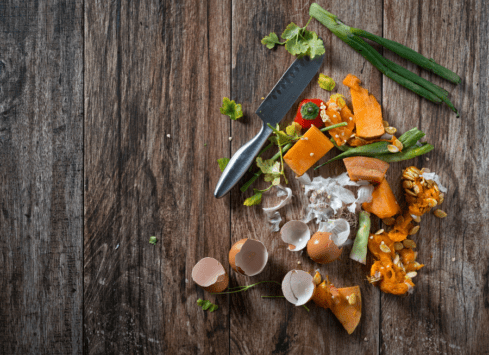My Passion to Help Stop Food Waste
By Mia Zavalij, Eatable Co-Founder and Food Recovery Consultant
My passion for stopping food waste started as a child when I visited my grandparents in Ukraine. They cleaned their plates at every meal and never wasted anything; food scraps were used to feed their chickens or as compost for their garden. Those visits gave me a completely new perspective about the value of food. So, years later, when I saw rampant food waste on my college campus, I was compelled to do something about it.
More than 37 million Americans struggle with hunger – and that number could easily grow because of the COVID-19 virus. Americans typically waste approximately 40 percent of the food we produce, which is why donating food is the right thing to do.
My first foray into food donation was more successful than I ever imagined. I co-founded the national nonprofit Food Recovery Network, an organization that empowers college students to rescue surplus prepared foods and donate it to their local communities. Food Recovery Network has grown to 230 chapters across America that have rescued and donated nearly 4 million pounds of food.
I realized there was the potential to expand beyond college campuses, so in 2016, I cofounded Eatable. We work with all food businesses across the nation, including Compass Group and Morrison Healthcare. We help both companies reduce food waste by establishing food donation programs, training their associates and tracking food waste through audits.
Morrison Healthcare and Compass Group – Doing Their Part
We’ve worked closely with Morrison and Compass Group for several years, implementing food donation programs, conducting waste audits, and supporting waste reduction efforts. As a result, the companies have been among our most successful partners in stopping food waste and donating food to nonprofit organizations throughout the country.

In recent years, Morrison has become a true national leader, which is evident in the number of accounts now participating in the program. Key statistics include:
- 57 Morrison accounts now donate food to more than 40 local nonprofit organizations. This is more than double the number of Morrison accounts compared to three years ago.
- Throughout the nation, Morrison donates 22,800 pounds of food each month.
- More than 100 other accounts are interested in pursuing a food donation program.
Here’s a great example of how it’s done. Beginning in July 2019, Morrison’s team at Sentara General Hospital in Norfolk Va., began donating food to the Foodbank of Southeastern Virginia and the Eastern Shore. This year, the program will be expanded to include all 12 Sentara hospitals in Virginia and northeastern North Carolina, says Jack Hotaling, senior director of food and nutrition services at Sentara. In addition, plans are underway for all of Morrison’s managers to volunteer at the Foodbank.
Helping Those in Need
This year, Stop Food Waste Day takes place on April 29th. As we all know, this day takes on added significance this year due to the hardships created for many American households due to the COVID-19 virus.

While I suspect many people are managing their food supplies well during the current crisis, Stop Food Waste Day is a strong reminder about how we can better understand how to consume the food we purchase and donated the food we don’t eat.
We work closely with Morrison Healthcare to make it as easy as possible for operators to set up a food donation program. Our programs vary in size and scope. Food donations from Morrison range from approximately 50 pounds to 200 pounds of food each week. A typical donation consists of food already prepared that is high in protein and vegetables.
Even though it requires more planning to handle this type of food donation, nonprofit organizations desperately need and really appreciate receiving high quality, prepared foods. It enables them to offer variety to the individuals they serve and frees up the time it takes to prepare the food.
Morrison’s food donations are helping thousands of people continue to have nutritious, healthy meals during this difficult period. As we all continue to practice new ways to stay safe and return to a more normal life, please continue to think of others in our communities who may benefit from your efforts. I’m proud of our partnership and look forward to working with more accounts in the near future.





